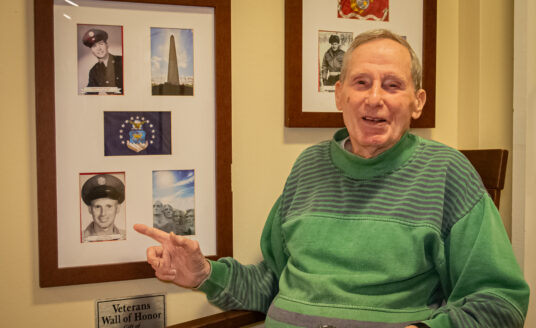With dementia, there may be a definitive moment that tells a family member, caregiver, or senior that more extensive supervision and care is needed. It could happen when the senior drives to a familiar location and can’t remember how to get back home, or when a senior loved one repeatedly fails to take his or her medications correctly. When those moments come, you might wonder whether it’s time to consider a memory care community for your loved one.
In the early stages of dementia, it is often difficult to distinguish normal signs of aging and Alzheimer’s disease or other forms of dementia. Hopefully this information will provide some assistance.
What are the Signs of Dementia?
The following information is provided by the Alzheimer’s Association.
Changes in behavior. Sudden apprehension about completing daily tasks and the withdrawal from people and social situations may indicate the presence of dementia. In early-stage Alzheimer’s, the person may forget information they just heard or read, frequently misplace items, and have trouble planning and organizing. Stacks of unopened mail, an increasing number of unpaid bills, and issues of medication management are other possible signs.
In middle-stage Alzheimer’s disease, the senior may become increasingly moody or withdrawn, especially in socially or mentally challenging situations. Often this stage is when wandering away from the home and becoming lost occurs. Personality and behavioral changes, including suspiciousness, delusions or compulsive, repetitive behavior like hand-wringing or tissue shredding, may also present themselves.
Decline in habits and hygiene. Dementia can cause a person who was once fastidious about her or his appearance to neglect basic hygiene, dress improperly, put clothes on in the wrong order, or become unable to make clothing choices at all. In middle-stage dementia, a person with dementia may have trouble controlling their bladder and bowels. Sleep patterns may also change, such as sleeping during the day and becoming restless at night.
Changes in awareness. In middle-stage Alzheimer’s, the senior can forget events or personal history, have difficulty remembering the day or the week, the date, or their address or telephone number.
Loss of physical and verbal abilities. In late-stage dementia, a person may experience difficulty walking, sitting and, eventually, swallowing. They may have extreme challenges communicating, and become more vulnerable to infections, especially pneumonia.
If the senior becomes thin or frail, it may mean that he or she can no longer shop for groceries or prepare meals. A family member or caregiver should also check cabinets and refrigerators for expired food that could be a health hazard.
When Does it Become Too Much?
Tests for determining if dementia is present should be conducted and evaluated by health care professionals. If dementia is diagnosed, it will become progressively more and more challenging to address. In the late stage of dementia, around-the-clock care and supervision often is required to keep the senior safe.
At some point, family members and caregivers have to assess their ability to maintain the care and supervision required to keep their senior in his or her home. Signs of caregiver burnout include:
- Overwhelming physical and mental fatigue
- Withdrawal from family and friends
- Sleep problems
- Headaches and other physical pain
- Changes in eating habits
- Depression
- Increased use of medications or alcohol
- Feelings of helplessness and hopelessness
- Irritability and anxiety
- Neglecting other responsibilities, particularly with a spouse and children
Caregiver burnout is common in caring for someone with dementia, as caregivers feel the need to keep providing for the senior’s needs while neglecting their own lives. However, the reality is that when you as a caregiver have reached your limit, the healthiest thing to do is find other resources for your loved one.
What is Memory Care?
Memory care is a specialized form of care for people struggling with memory loss due to dementia or other cognitive impairments. Personalized care is delivered by trained staff care in a comfortable and safe environment.
These resources range from memory support in assisted living communities where people with mild or moderate stages of Alzheimer’s disease or dementia can live their best life with supervised and customized care plans to address their unique needs.
There are special memory support units within some senior living communities to care for people in the more advanced stage of dementia. These facilities look and feel much like regular assisted living communities, with dining rooms, common areas, lounges, game rooms, fitness centers and activity rooms. Accommodations may include one- and two-bedroom apartments equipped with barrier-free bathrooms, and emergency call systems that connect with on-site caregivers.
Often, these units come with enclosed courtyards and secure outdoor space with walking paths for residents.
The design of a memory care community is focused on making the most of a resident’s life while minimizing any confusion and frustration that they may experience. Memory boxes containing small personal items may be placed outside each suite to help residents identify which room is theirs.
Security features include motion-activated lights, cameras and alarms and a 24/7 on-site security staff.
In addition to providing for residents’ overall health, staff plan activities and therapies using art, pets, music, and aromatherapy to engage residents, stimulate memories and promote relaxation.
Memory support care can also be found in some skilled nursing settings, where treatment for other chronic diseases or injuries can be provided as well.
A Difficult Decision
Whether or not it is time to seek out a memory care community for a senior loved one is a difficult decision to make. Given the increasing level of care that will be needed and its availability in these types of communities, the best choice for all concerned may be a memory care community.
| Bethesda has a 133-year tradition of providing excellent senior living options, including independent living, assisted living, memory care, and skilled nursing. If you are considering memory care, we welcome you to tour one of our exceptional communities, including Bethesda Dilworth, Bethesda Meadow, Bethesda Southgate, and Bethesda Hawthorne Place. Discover the level of care that only a non-profit staffed by highly-trained nurses, therapists, and aids can offer. |
Want to find out more?
If you’d like to stay up to date with Bethesda Health Group, sign up here to receive our blog and newsletters!
"*" indicates required fields
Related Articles
Want to find out more?
If you’d like to stay up to date with Bethesda Health Group, sign up here to receive our blog and newsletters!
"*" indicates required fields



